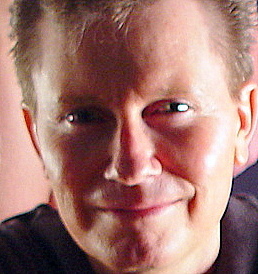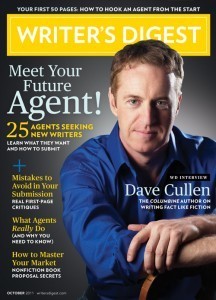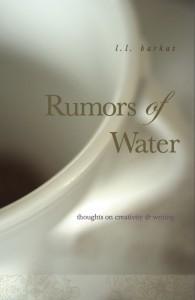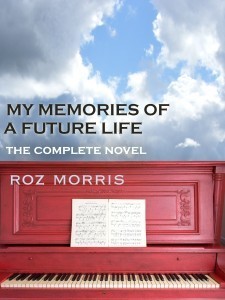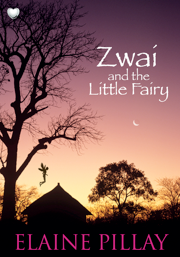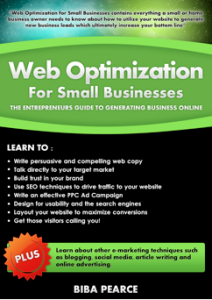Jane Friedman's Blog: Jane Friedman, page 203
October 14, 2011
3 Questions Every Creative Person Must Ask
I'm starting to find that the same dilemmas come up again and again when I talk with a group about online media and marketing.
These are dilemmas that I can't solve. They boil down to three questions you have to ask yourself—and be able to answer honestly—to find a path that's your own, not mine.
1. Are you creating primarily for yourself or primarily for an audience?
Almost all of my advice is based on the assumption that you want to entertain, inform, or increase your audience. Not everyone is concerned with this, nor should they be.
If you're producing work for an audience, it means:
playing by at least some rules of the industry
caring what others think of your work
interacting with your audience and being available to them
doing things not for your art, but out of service to your audience
putting on a performance, or adopting some kind of persona
marketing and being visible
If you're creating for yourself, it means:
the act is worthwhile regardless of who sees your work
fulfillment comes from your struggle with the practice, not from distribution or feedback
Of course, you may be creating for both yourself AND an audience. But some artists who believe they are producing work for an audience aren't willing to make the sacrifices required to do so. Which means there's another level to this.
Are you:
creating for an audience
creating for an audience that earns you money
Once money enters the equation, you have to start sacrificing more of what you want, and bend to the demands of the market. (Or find a generous patron or foundation!)
What is it that you truly want out of your creative endeavors? Do you really know?
2. How much of yourself are you going to share? And which part?
Let's assume you do want an audience (of any size). It necessitates some kind of persona. Deciding not to have a persona (removing yourself from visibility, Pynchon style) is a persona.
You can't imitate someone else's persona. You can only be yourself. Some of us think famous people are (or ought to be) aloof and distant, so we imitate aloofness, even when it has nothing to do with our personality.
After I give talks about digital marketing, relationship building, and social media, inevitably one person will come up and say, "I don't want to be visible online. I just want people to read my stories."
That's a rather boring proposition in this day and age.
So you have to ask yourself—even if you're shy or think you're boring—what part of yourself are you going to share and put on display? It's got to be something, so let's make it interesting. Let's really dive into the fiction of who you are OR aren't. Make up something you can believe in, so others can believe in it, too. (That's what we all want, most desperately. Meaning.)
3. What is your killer medium?
For me (personally), it's not the book form. It's the workshop or the conference keynote. It's the ability to answer any question thrown at me. It's my desire to be of service in a personalized way.
Speaking about writers specifically, the book is often assumed to be the most authoritative and important medium, but that's only because we've all been led to believe that (through a culture that has created The Myth about the author as authority).
It's a Myth, neither good nor bad. Just a belief system that, increasingly, we're all moving away from.
Creative people too often pursue mediums that have been pushed on them by other people, and because it's the well-worn path. As Robert Frost says, take the road less traveled. It makes all the difference.

October 13, 2011
Writing on the Ether

iStockphoto.com / Nikada
The digital train has so left the station. That's a Frankfurt railway stop, as a matter of fact. Fear and loathing, at home and abroad. International publishing-industry players met to hold meetings, attend conferences, drink heavily, and attend more conferences. They tweet-gasped at hotel wi-fi costing 19 euros per day and publishers warned of a digital "reckoning" headed toward them like the aforementioned train. In the States, our own special brand of American jitters led to complaints of "blog fatigue" and paranoia that ebooks might kill the footnote. Only occasionally did you hear a whisper reminding us all: It's the content, stupid.
"Struggling to make an impact"
The concept that seems to have struck the biggest chord is his not necessarily revolutionary, but it is timely—a reminder that publishers need to stop thinking of their readers as a broadcast audience. "Like our Facebook page!" he said, "Why don't you try liking their Facebook page, and following your loyal consumers' social media?"
Joel Naoum hears Mitch Joel speak at the TOC Frankfurt conference on Tuesday, finding "a mixed bag" at Tools of Change for Publishing
#bbpBox_123390892315910145 a { text-decoration:none; color:#0084B4; }#bbpBox_123390892315910145 a:hover { text-decoration:underline; }They missed a trick – if they called the event Talking in Circles - Tools of Change they could have been #tictoc #fbf11[image error]October 10, 2011 9:34 am via web Reply Retweet Favorite FBFoff
Daggers in Deutschland
He warned that publishers' grip on the business was "starting to change in favour of the author". He added: "Publishers are frightened to death of the e-book market, because they see the opportunity for authors, that they did not have before."
That's Philip Jones writing for TheBookseller.com about Trident agent Robert Gottlieb's comments at Publishers Launch Frankfurt, in Agents warn of e-book "reckoning"
#bbpBox_124102366684393472 a { text-decoration:none; color:#0084B4; }#bbpBox_124102366684393472 a:hover { text-decoration:underline; }I'm making T-shirts @about 20 hours ago via web Reply Retweet Favorite Brendan Borrell
Did we mention the content, stupid?
We need to communicate with customers to understand how, where and when they want to consume our content and respond accordingly. … One of the biggest challenges we've faced is deciding where to focus our time and resources as the digital landscape evolves.
Back in New York, Matt Mullin's Digital Book World profile of Andrea Fleck-Nisbet, digital director at Workman Publishing, neatly named many of the complexities publishers face as the industry hurtles toward e-reading.
#bbpBox_123869056389480448 a { text-decoration:none; color:#0084B4; }#bbpBox_123869056389480448 a:hover { text-decoration:underline; }Most important lesson from the Eugenides/Franzen/DFW article? Nobody looked good in photos in the 80s/90s.[image error]October 11, 2011 5:14 pm via web Reply Retweet Favorite Matt Mullin
Your most rabid fanboy might be your best expert
Because of shared obsessions among horse lovers, there are more horseshoers working today than a hundred years ago, in the age of cowboys. There are more blacksmiths making swords and chain mail armor this year than ever worked in the medieval past.
In a deft grace note to the global search for readership, Kevin Kelly reconfigures what once was a dream team on your staff. He directs you to a "hobby tribe" of consumers. Among them you'll find that Expertise now resides in fanatical customers
#bbpBox_123044079398432768 a { text-decoration:none; color:#0099B9; }#bbpBox_123044079398432768 a:hover { text-decoration:underline; }'Everyone's a diva these days' - @October 9, 2011 10:36 am via Twitter for iPhone Reply Retweet Favorite Timothy George
Your blog sommelier again: Writers yearning to be e-
I might be the biggest advocate of self-publishing you will ever meet. However, I don't believe it's for everyone. It is definitely for me, but that's because I write fast and all over the place. … Plus, I spent the last few years learning a heap about marketing, and believe I'm qualified to do the best possible job for myself.
A pairing, if you please. In his interview with Jane Friedman, The Evolving Model of the Entrepreneurial Novelist, Sean Platt talks (above) of his own comfort as both copywriter and fiction author, and his management of the business side of his model. While author Jami Gold (below) sees the tall order that self-marketing is to many creative types and asks Are Writers Without Business Sense Doomed?
Some people don't have the entrepreneurial spirit. That is a fact. Some people couldn't run a business to save their life. That is a fact. I don't want those facts to prevent talented writers from even trying to get themselves published. The push to force writers into a business model could make those without business savvy feel there's no place for them in the industry.
#bbpBox_123692246544551936 a { text-decoration:none; color:#0099ff; }#bbpBox_123692246544551936 a:hover { text-decoration:underline; }Ereader owners buy almost twice as many books as non-ereader owners. And read them. #tocffm[image error]October 11, 2011 5:31 am via Twitter for iPadReplyRetweetFavoriteJoel Naoum
But the backlists are back, baby
There's nothing like suddenly seeing an author who's been out of print for years have his whole catalog become available—and then watching people come in and buy all the books in one shot!
As Barnes & Noble's Liz Scheier makes exuberantly clear in her interview with Anne Kostick, one of the positive potentials of Digital Reading At the Intersection of Reading and Retail is redeploying the ones that got away.
#bbpBox_123759287544717315 a { text-decoration:none; color:#181706; }#bbpBox_123759287544717315 a:hover { text-decoration:underline; }Hulse: enhanced ebooks have a low title count but are the 10th bestselling category of books for Apple. #RDM2011[image error]October 11, 2011 9:58 am via web Reply Retweet Favorite Eoin Purcell
Small Demons with big e-vantages
Small Demons is a new way of indexing and organizing full-text content from books. Instead of showing text snippets, their combination of algorithms and human editors organizes book content around people, places and things mentioned in each book.
Michael Cader, writing in Publishers Marketplace, described the concept of this new entry, presented at Frankfurt, in A Glimpse of Small Demons at FBF: "So when you look up an individual title, you see all the actual people mentioned; a map of places cited; and a scrolling list of all kinds of objects found in the text." An e-boon for readers who long for lists. And for marketers? "Small Demons will share their datasets back with the publishers, providing a unique metadata set for publishers to use in targeted fashion."
#bbpBox_123451002086113280 a { text-decoration:none; color:#93A644; }#bbpBox_123451002086113280 a:hover { text-decoration:underline; }Guess who is going to be knee-deep in metadata following #fbf11 #publaunch[image error]October 10, 2011 1:33 pm via Twitter for iPad Reply Retweet Favorite Severn House
First we see in a screen darkly
The future sometimes lies in the past, too: in South Korea, there is the centuries-old tradition of Asian screen culture. Think of the beautifully painted analog, yet highly narrative, screens that have adorned homes in that region of the world for generations. Today, screens are being reinvented for the digital age. South Korean companies are developing a new generation of screens that hark back to years and years of paper imagery.
Jan Chipchase doesn't blink amid an "urban vocabulary of numerous, ever-present interactive screens" in Seoul on Display: How Global Screen Culture Will Affect Us. But as Graeme Neill writes that even the American Booksellers Association (ABA) also Plans Its Own E-book Reader, you do start to wonder if they won't all look like small demons to us soon.
#bbpBox_124143398478286848 a { text-decoration:none; color:#706238; }#bbpBox_124143398478286848 a:hover { text-decoration:underline; }Have America's readers been crying out for an ABA sponsored device?[image error]about 17 hours ago via TweetDeck Reply Retweet Favorite Don Linn
#bbpBox_124151855524745217 a { text-decoration:none; color:#009999; }#bbpBox_124151855524745217 a:hover { text-decoration:underline; }@about 17 hours ago via HootSuite Reply Retweet Favorite Brett Sandusky
Outside of a dog
Should footnotes fully disappear, I would grieve their loss. I do not find it disagreeable to bend my nose south and find further information where it lands. Surely the purpose of a book is not to present a methodically linear narrative, never wavering from its course, with no superfluous commentary set off by commas.
In what might be the week's most misguided essay, Alexandra Horowitz, author of Inside of a Dog, displays something approaching e-hysteria in Will the E-Book Kill the Footnote? Turning to DBW's resident user-experience expert, Anne Kostick, I found the quality of mercy sorely straining at the leash: "I truly believe that an e-book can offer a better experience for all those notes, sources, further readings, and tangents than a printed page, if we can just get past that page thing (see my column "Getting Beyond the Book Fetish"). This footnote mourning is really about something visual, not conceptual–the PAGE. The page was a paper construct, and page design (including footnotes) was invented and perfected (?) around that rectangle. Kill the page, I say! The page is fine for paper, but if we continue to restrict our digital thinking to paper models we'll miss all the potential of digital books. Maybe we should stop calling them books! Maybe I'll write about that." And we'll look forward to it, too, Ms. Kostick.
#bbpBox_124148693900337152 a { text-decoration:none; color:#2FC2EF; }#bbpBox_124148693900337152 a:hover { text-decoration:underline; }Apologies if I've missed any tweets or emails today. Connectivity at #fbf11 is shockingly bad. Just appalling.[image error]about 17 hours ago via Twitterrific Reply Retweet Favorite Dean Johnson
E-zy publish, e-zy errors
When readers discovered typos in The Starter hardcover edition, we were able to immediately distribute free corrected e-book versions to anyone who had purchased a copy. This goodwill created lifelong fans and could not have been possible through a third-party retailer.
That's Tay Nguyen in a guest post for Jane here. He's talking about his BackMyBook.com service for authors. The writer in question is bestseller Scott Sigler. The hardcover costs $34.95 (no extra charge for the typos). And being the kind, sweet-tempered soul I am, I immediately wrote to Tay, asking if in the age of such easy self-publication, he's not really running Back-My-Typo-Ridden-Overpriced-Self-Published-Book-With-Damage-Control.com?
Great sport that he is, Tay got right back to me: "Quality means exactly what you're referring to: typos, grammar, story continuity etc. I personally recommend that all my clients have their work professionally edited. Scott learned a hard lesson when he got a lot of reader feedback about the errors in his book. So he now has a professional freelance editor review all his work. The interesting observation is that he didn't lose any readers because of the errors. No one said 'I'll never buy your book again.' They complained, made fun of him, called him out on it for sure. In fact, he capitalized on it by running the MEA CULPA campaign."
Moral of this one? If you have to screw up at $35 a pop, you might want to have Tay getting your back. He says watching publishing go through its metamorphosis is "part like watching a train wreck in slow motion, part like watching a butterfly emerge from its cocoon."
#bbpBox_122337088006918144 a { text-decoration:none; color:#0084B4; }#bbpBox_122337088006918144 a:hover { text-decoration:underline; }not to mention the participants RT @October 7, 2011 11:46 am via TweetDeck Reply Retweet Favorite Brian O'Leary
You are getting very sleepy …
For some it's the negativity that comes with putting yourself out there. Some people have run out of ideas. Some people have taken a look at the cost/benefit and decided it wasn't worth it. And some just forget to post.
Agent-gone-CNET-digital-guy Nathan Bransford chose a cracking good Breugel detail to illustrate his question Is Blog Fatigue on the Rise? mentioning author Jon Konrath and others who are going on a blog hiatus.
#bbpBox_123028022659002369 a { text-decoration:none; color:#0084B4; }#bbpBox_123028022659002369 a:hover { text-decoration:underline; }I always carry dice with me wherever I go. That's how I roll.[image error]October 9, 2011 9:32 am via web Reply Retweet Favorite JA Konrath
How many pictures are worth the right word?
Icons are symbols supplied with most mind mapping software programs. You can use icons as a type of visual shorthand to indicate topic category, importance, or sequence. You can also use icons to show progress completing a task.
Roger C. Parker makes a good a case for How to Get Started Mind Mapping Your Book (and everything else). What I'd like to see is some research that helps us understand why it helps true word people, such as writers, to use what Parker calls "a form of visual thinking."
#bbpBox_124246547004268544 a { text-decoration:none; color:#0084B4; }#bbpBox_124246547004268544 a:hover { text-decoration:underline; }Bowker launches survey of eBook growth and consumer attitudes on four continents No Shelf Required @about 10 hours ago via TweetDeck Reply Retweet Favorite Kevin Cronin
When form follows function very well
Because, let's be frank, we might as well just fill in all that ridiculous content with beautiful white space.
Can you integrate what you do with who you are as well as Ben Cook has done? If so, I salute you, as I do him. Check out his Venn-diagrammatic BenCookDesign About Me page.
#bbpBox_124120546043633664 a { text-decoration:none; color:#93A644; }#bbpBox_124120546043633664 a:hover { text-decoration:underline; }Interesting and cute. Only 300 copies. RT @about 19 hours ago via HootSuite Reply Retweet Favorite Dominique Raccah
A critic in the hen house
(Hearing executives like Mark Zuckerberg) is like being in the presence of half-Ghandi, half-Stalin. They have no sense of moral framework. They don't care as long as they're giving you the tools and you use them.
As Paid Content's Robert Andrews reports from Bristol's Marshall McLuhan centennial seminars, even a lot of self-styled McLuhan fans aren't necessarily clear on the importance of good nay-saying: Where Are the Voices to Transcend Techno-Jollity?
#bbpBox_124214151466860546 a { text-decoration:none; color:#69808a; }#bbpBox_124214151466860546 a:hover { text-decoration:underline; }Oh yay, air traffic controllers in Germany decided NOT to go on strike. All the Frankfurt folk must be relieved. #FBF11[image error]about 12 hours ago via web Reply Retweet Favorite Robin Lenz
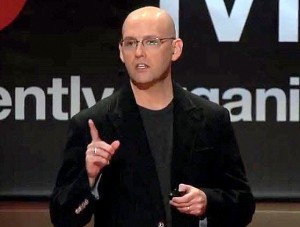
Brad Meltzer TEDxTalks
"My name is Brad Meltzer. And this novel I wrote, it's for you."
The first person who ever told me I could write? She had no idea of her impact, no concept of her legacy.
As with Andrews' voices of techno-jollity, maybe you've quietly felt some unease around those what Hamilton Nolan called the "cult-like lachrymosity" that surrounded the news of Steve Jobs' death. This might help. Here's someone asking the far more important question: what about your legacy? Spend 16 minutes with the author of The Inner Circle, my pal Brad, as he talks over what it might mean simply to thank people like his teacher, Ms. Spicer, in How To Write Your Own Obituary. "You are on the mountaintop every single day … it is all within your power."
Porter Anderson is a Fellow with the National Critics Institute, and a senior producer and consultant formerly with the United Nations World Food Programme in Rome and INDEX: Design to Improve Life in Copenhagen. As a journalist, he has worked with media including CNN, the Village Voice, and the Dallas Times Herald. He's based in Tampa.

October 12, 2011
The Evolving Model of the Entrepreneurial Novelist
It's pleasure to bring you this insightful Q&A with writer Sean Platt. As his own website states, Sean Platt writes it all. He writes copy, websites, books, and has most recently developed a new epic thriller series, Yesterday's Gone , with his writing partner, David Wright.
In addition to my interest in the creation and marketing of his series—described in detail below—I also wanted to get Sean's take on the role of entrepreneurship and marketing in a novelist's life. Read on for his passion and wisdom!
You have a successful and fascinating background as an entrepreneur—someone who knows how to write to SELL. You're now transitioning to the world of fiction. Given the skill set you have, how has this influenced and/or informed your work as a novelist in terms of craft, technique, and process?
I think that might be the best first question I've been asked yet.
I've only been an online entrepreneur for about three years, but my time as an entrepreneur in general goes back to when I was about 10 or so, selling candy bars, comic books and Garbage Pail Kids on the playground.
I've had several businesses since then, but I went online as a writer a few years back and completely forgot my business background, wrongly believing the quality of my writing would be enough to build a lucrative online career.
Spoiler alert: it wasn't.
Any writer who believes their writing is good enough to build BIG business all by its lonesome is looking at a broken road paved with shattered glass. I'm not saying it's impossible, but I've known plenty of great writers who've had to eat a big pile of dirt pie because they thought the strength of their voice would be enough, then went online unprepared, myself included.
No matter what business you're in, you should understand marketing basics, at least if you want to pull the most potential from everything you write.
It took me a long time to accept this. My inner entrepreneur knew it on a practical level, but the creator in me wanted my writing to be exceptional enough to spread by quality alone.
Being a ghostwriter and writing marketing copy for others fixed my delusion.
But the awesome thing is, though resistant in the beginning, learning the basics of copywriting and persuasion gave me the psychological insight to help me grow as a writer and deliver a better reader experience. And creating the best possible reading experience is what will ultimately help me build a large, engaged audience.
Copywriting is persuasion, and that means writing in a way that gets people to move, feel, think, or take action. In fiction, that means keeping the book in a reader's hands, get them to turn the pages all the way until the last one, and then tell all their friends.
I thank my lucky stars every day for the road that led me to copywriting. What I once saw as an irksome diversion, I now see as the most valuable tool in my box.
Copywriting has help me instinctively lay an intelligent structure under everything I write, from fiction to sales letters to poetry.
We both know that selling fiction is a harder proposition than selling information. In your mind, what strategies are the same and what strategies are different when tackling the marketing of a novel (or fictional series) vs. an information product?
Selling fiction may be slightly more difficult, but I also believe it's ultimately more rewarding. If you look at the top 100 paid downloads on Kindle, they're all fiction. People crave entertainment, an escape from their day-to-day. Readers are more likely to tell their friends about their latest fiction read than they would be with a nonfiction book.
If you become the emancipator of the mundane, and do it consistently from title to title, readers will gladly line up to buy everything you write. So while nonfiction might solve an immediate need, fiction allows you to build a deeply loyal audience.
Of course there are examples on both sides. I'll buy everything Malcolm Gladwell writes, but most of the auto-buys on my list are from writers who know how to drop me in a world I've never been, then push my buttons on every page as long as I'm there.
You can make a great living selling high-priced information, but the info usually comes with an abbreviated half-life. If I write a great piece of fiction, my children can make money from that work even after I'm gone, which is something I absolutely love.
With nonfiction, you have keywords on your side. You can cover an evergreen topic and generate a small return on that title forever. But truly connect with a reader and they'll be sifting through your back catalogue looking for more.
Fiction helps you to build a legacy, and that's where I'd like to land.
I'm in a mastermind with a few dozen online entrepreneurs, meeting four times a year. One of the gentlemen in our group has a massive e-book project with BIG dollars behind it. He's publishing 1,000 nonfiction titles to create a passive income stream that will last him the rest of his life. This isn't the Kindle spam you're starting to see a lot of. These books are high-quality and thoroughly researched.
When I told him how much I admired his well articulated strategy and the tremendous care he was putting into his plan, along with the fact that he was publishing 1,000 titles without resorting to the use of PLR, he just laughed, bought me a beer, and said:
"You can write fiction. You'll build an audience and hit my numbers faster than I can dream."
I love that. It's the difference between writing to keywords like you do with SEO, and writing for your muse. Being able to connect with an audience is everything. I love how John Locke did it, researching his market thoroughly, then creating the Donovan Creed character to service that audience.
Tell us about your motivation for developing a series vs stand-alone works. Pros and cons? Do you anticipate this is the future of fiction writing—or is this just something you think works for certain types of writers?
My writing partner, David Wright, and I both love serialized fiction a lot, especially on TV. We're both big fans of Dexter, 24, LOST, Breaking Bad, etc. We've been fascinated with the idea of blending the notes of superbly scripted television with the serialized fiction model first introduced by Dickens a couple hundred years ago, tailored to a modern buyer bred to consume bite-sized content.
Each of our "episodes" is 100 pages or so, which makes them easy to fly through, especially considering they're specifically written as page turners. We first tried serializing fiction two years back, but did it all wrong. This time, we had to nail it.
One common denominator among authors crushing it on Kindle is that they have multiple titles in the same genre. Dave and I had published six titles by August of this year, but they were in four separate markets. We may as well have had just one.
We wanted to hit Christmas with multiple titles, and serializing a single story was the smartest way to get there without sacrifice. The most important thing was to deliver a remarkable reader experience.
I don't think serialization is the future of fiction writing, but I do believe it will be a massive trend, starting in like 90 minutes from now. And as you said, I also think it's suited to a particular type of writer.
Not everything I do will be serialized, far from it. I still love the standalone novel and plan to write plenty. I will say that this particular project, Yesterday's Gone, is the most fun I've ever had as a writer. And even though Dave and I set out to write a fun but somewhat trashy page turner, I am ridiculously proud of the end result, and slightly surprised by its depth.
I knew I could write a good book, that's my job as a ghostwriter, but those usually take a long time. We wanted to write Yesterday's Gone fast and furious, and I think both of us are a bit surprised at what surfaced in the end.
What are your key marketing strategies? How are you finding (or will you find) your audience? Is there any key principle to how you're tackling it? Will social media play a big role?
Another great question!
If Yesterday's Gone was an information product, the launch would consist of me sending out a few e-mails, lining up affiliates, and a bunch of blah-blah blogging that would bore me, and probably you, to tears. But it isn't. Yesterday's Gone is both more old-fashioned, and more modern than anything else I've seen. And it requires a different strategy entirely.
It would be impossible to hit the critical mass we're looking for without reaching our core market of readers, yet our networks aren't large enough to make that happen, nor are we willing to spend the tens of thousands of dollars it would take to get there with paid media.
Our best bet is to reach the influencers, since they're the ones who can reach the readers. Melt the snow at the top of the mountain to fill the rivers below.
That's why I'm here taking you up on your kind offer for an interview, it's why I was on Copyblogger a couple of days ago, and why Dave and I have dozens of interviews, guest posts and profiles lined up throughout the remainder of the year.
Social media is the biggest piece for us. We have well nurtured online audiences and will be using our social media influence to augment our stops on the massive blog tour from now through the end of the year.
What surprises or unexpected challenges have you already faced? Or what do you think is your biggest challenge to come?
The first big hiccup came a few days ago when I saw that Joe Konrath was taking a break from blogging! I had a great strategy, I thought, to grab his attention. I've read his work for a long time, and am a big admirer of what he's done online. I've made genuine mention of him in many of my guest posts, and Dave and I were writing something tailored to him to publish next week.
Once I saw that he was taking a break, the strategy went kaput. Unfortunate, but just a small oh well. You can never hang your entire strategy on someone else's nail anyway.
And yes, I should have e-mailed Joe a month ago when you first suggested it, but I really hate cold e-mailing and believed that if he discovered Yesterday's Gone on his own, it would be something he would naturally champion, rather than being asked to do so by someone he doesn't know.
The main challenge is in knowing where to place our focus, though that's been a challenge every day I've been online for the last three years! It is gradually getting better, but we'll need to run fast over the next 10 weeks or so until Christmas to hit the numbers we're looking for. It will be a challenge, but I'm confident that once we reach our initial baseline, the quality of our story will carry it the rest of the way.
We're starting to see a great swell of authors who are more entrepreneurial than ever (both successful and not-so successful), which is quite a new phenomenon in the publishing world. Most authors have depended heavily on publishers, agents, and others to do their marketing and promotion for them. But you've been a natural entrepreneur all your life. For authors who are considering the independent publishing route, what advice do you have? What's the critical mindset—or what are the critical tools—an author must have?
That might be the best question I've asked during the entire promotion, Jane.
I might be the biggest advocate of self-publishing you will ever meet. However, I don't believe it's for everyone.
It is definitely for me, but that's because I write fast and all over the place. I want to publish my own work, from children's to horror to poetry to nonfiction, to everything in between. I'm even interested in writing romance. I also love working with other writers and moving them from good to great, and see myself as a publisher as much as I do a writer. Plus, I spent the last few years learning a heap about marketing, and believe I'm qualified to do the best possible job for myself.
But for writers who only want to write a couple of books, or don't want to do any marketing or any of the heavy lifting stuff like layout, editing, or the hundred and one tiny things it takes to get a title to market, traditional publishing is probably the way to go.
We're in the midst of a huge shift, and the rules aren't set. Things are changing constantly and faster than ever. The best advice I can give is be prepared and don't settle for anything but your best. You MUST deliver your reader the best experience possible.
Kindle is not a gold rush, and if you treat it like it is, you will fail. Self-publishing is like anything. Quality will rise.
The future of reading and writing is wonderfully unexpected. Those writers who will win big are those who understand where things are headed and hit the highway before there's traffic.
 Sean Platt is now launching Yesterday's Gone. You can start by buying Yesterday's Gone pilot for 99 cents, or get the full season for just $4.99 and keep the smile on your face for a week.
Sean Platt is now launching Yesterday's Gone. You can start by buying Yesterday's Gone pilot for 99 cents, or get the full season for just $4.99 and keep the smile on your face for a week.
If you want to make sure you don't miss a thing, click here to become a "Goner" and get exclusive chapters with shocking endings, and a ringside seat to Sean's behind-the-scenes marketing. Learn more about Sean here, and follow him on Twitter.

October 11, 2011
Book Proposals in the Digital Age
I started my first publishing job in 1998, and I immediately started reviewing nonfiction book proposals as part of an editorial team.
By 2010, what constituted a strong book proposal had dramatically transformed. You can probably guess why. The Internet has forever changed how we discover, access, and distribute information and entertainment. For a nonfiction (non-narrative) book to be published these days, it needs a unique selling proposition that can overcome objections based on, "You can get that for free on the Internet," or "The Internet offers a better solution or experience."
In my October 2011 article for Writer's Digest, "Book Proposals in the Digital Age," I identify 3 issues you must address in every book proposal. You'll need to buy the issue for all 2,500 words I spill on this topic, but from a big-picture perspective, here's what I say.
1. Your competitive analysis can't stop at print.
A book proposal's competitive title analysis typically evaluates what key competitors are on the shelf. But that's not good enough any more. You also need to uncover the following:
Best-selling ebook-only titles (whether traditional or indie)
Top blogs and websites
Multimedia options and applications
When you're ready to write your proposal, the most visible and competitive online and multimedia offerings should be described. Which brings us to our next point …
2. What's your evidence of need for a print book?
Why is your book needed if people can find the information or advice they need from an online community or a tablet/mobile application? (Just imagine the kind of competition in the categories of travel, cooking, and reference!)
There may be a very good reason your book will successfully compete against the online world, but you can no longer assume people will buy a book as a solution to their problem. You may even realize, in the process of researching the online competition, that what you should do isn't write a book, but get started with a blog or community site instead!
This, in fact, is what I often recommend to authors who are working in categories where advice and resources are abundant online. (There are ways to monetize online information, but that's not what this post is about.)
Once you have a significant online readership, then you might successfully argue that you have a captive audience for any books you author. (This is how most popular bloggers land book deals.) But your captive audience probably needs to be at least 50,000 visitors per month, if not double that, to merit the interest of a commercial publisher. And by that point, you may be far more interested in self-publishing!
3. You need an online content strategy
A print (or electronic) book is not and should not be the final step in the publishing game, or in your career. Agents and editors want to see that your book is not the beginning OR end of the road—that it is merely one aspect of your much larger purpose and strategy for developing content and serving a readership, online and off.
So, think creatively about what can or should be done outside the book format. What are you already doing that can support the book and give it a presence or companion online? How can the content in your book be divided or reworked? Could it be customized or personalized? Have you thought about audio or video versions or supplements? Could you create an online class? How about an e-newsletter?
Bottom line
We're still experiencing a revolution in how we find, use and share information—and your proposal must demonstrate why the book form is a smart and viable way to deliver your advice or information.
I believe that we'll eventually see the book form (as we know it today) disappear for many nonfiction categories. (See my interview here with Michael Hyatt for more on this.) Don't despair, though. Thinking beyond the book (and off the page) is primarily a creative and imaginative act. You still get to share your message or information, but in a more useful and dynamic way.
To read my full article on book proposals in the digital age, click here to purchase the October 2011 issue of Writer's Digest (as a PDF).

October 10, 2011
You Don't Need a Degree to Find Your Voice
The following excerpt is from Rumors of Water: Thoughts on Creativity & Writing by L.L. Barkat.
I am opening a jar of green tea from Granada, Spain. It's an old salsa jar, without its label. The tea is silvery and reminds me of those pictures I've seen of the mountain mist in China. There are curls of lavender flowers. Bits of orange peel. I am not surprised about the peels. When we went to Granada, we were told that a nearby city, Sevilla, blooms with orange-scented flowers so strong you can almost smell them in your dreams. When the flowers fall, the oranges come. On every tree-lined street, there is citrus for the taking.
This morning, I am making Te Granada, sharing it with Sara. This is the kind of sharing I feel I could do forever.
"We should do a tea pilgrimage," I say.
"What's that?"
"I don't know," I say. "Maybe we read everything we can find about tea. Maybe we try new teas from around the world. You could keep a journal. We could write poems. We could go to Kathleen's Tea House, for scones and Crème Earl Grey."
She agrees, and finds a pink journal with green flowers. She makes a declaration page, for those who want to say yes to the journey. She makes lines for signatures. I sign mine "Mommy."
I open the computer, go to our local library's site, and type in tea. A book comes up, Tea With Jane Austen, and I order it. Over the next month, after dinner with my girls, I share the words of this book. We read of tea in England, how Jane would have made toast with an iron contraption, and how she held the key to the tea cabinet. Tea was so expensive in Jane's time that servants would steal it to resell. A servant not inclined to steal might save the used leaves and peddle them. Charlatans made tea from poisonous tree leaves, added coloring and sometimes dung, and put it up for sale. The British became so enamored with tea that they went into national debt over it. The plan for extrication from this dilemma? Sell opium to their tea trader, China.
The girls and I try new teas. We place our orders with daddy-the-world-traveler. He brings home Christmas Tea and Bagatelle, from Betjeman and Barton, located in Paris. I become so enamored with these teas that I trade in my standing order for chocolate and make it tea. The girls steal away with cups of Christmas Tea, regardless of the season. I discover that Betjeman and Barton do not distribute through channels in the U.S., so my new habit will, of necessity, take me to their online French catalog, where every tea sounds like heaven, with roses and sunflowers or orange peels and cherries.
To have a voice, a writer must have passions and a sense of place. These passions and places infuse the writing with silvery leaves and orange peels, versus, say, ocotillo and pequins. The words of a region, a philosophy, a passion for French or French tea, come with their own sounds and rhythms and fragrances. If we read the Palestinian poet Darwish, for instance, we will find ourselves mouthing jasmine, doves, olives, veils, whereas if we read a poet like Marcus Goodyear, we will find ourselves breathing to the staccato of cactus, cattle, tree poker.
Sometimes aspiring writers ask me if they should get a degree in writing, or go to a lot of writer's conferences. A writing degree and a conference will help us make valuable professional connections. They might inspire (or require) us to write. Which is a good thing. But we don't need either of these experiences to find and use our voice. Our voice will be better developed if we spend time with our passions. Learn the difference between a tangerine and a tangelo. Consider the variation in their blooms, and the place where their nectar beads.
I pour a tea called Polka into two cups, one for Sara, one for me. It is dotted with sunflower petals. If this tea could smile and speak, it would tell us of its home, first in the mountains of China or India, then somewhere in the sun-kissed countryside of France.
 L.L. Barkat is Managing Editor of The High Calling. She likes the sea, especially the sound of it, and the mystery of foggy mornings. Children make her laugh, forget herself. She has a spiritual memoir
God in the Yard: Spiritual Practice for the Rest of Us
and a poetry book,
InsideOut: poems
. Find her at Seedlings in Stone or follow her on Twitter.
L.L. Barkat is Managing Editor of The High Calling. She likes the sea, especially the sound of it, and the mystery of foggy mornings. Children make her laugh, forget herself. She has a spiritual memoir
God in the Yard: Spiritual Practice for the Rest of Us
and a poetry book,
InsideOut: poems
. Find her at Seedlings in Stone or follow her on Twitter.
October 7, 2011
3 Keys to Sustainable & Successful Indie Authorship
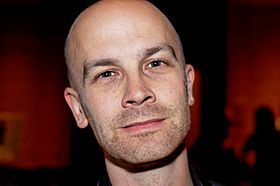
Scott Sigler
Note from Jane: I don't usually run posts that feature or promote a single service or solution. Authors need to find partners who not only fit with them, but also fit with their work and their audience. In Scott Sigler's case, I think he's found an excellent partner that helps empower his long-term author career. Read this as a case study in what a successful fit looks like, rather than as THE solution for every author. Now, without further ado …
Today's guest blogger is entrepreneur Tay Nguyen. Tay is a co-founder or BackMyBook, a company that offers services and technology platforms necessary to guide authors through the rapidly changing world of publishing. Previously, Tay was a co-founder at DivX, an Internet video company he took to a $535 million valuation. He and his partner, GK Parish-Philp, formerly of mp3.com, are now applying their collective Internet experience to the publishing world.
These are very interesting times for the publishing industry: bookstore closures; the proliferation of e-books; the new legitimacy of self-publishing; the rise of Amazon, Google and Apple; the launch of new digital publishers … There are almost daily announcements and changes.
Scott Sigler's story presents an example of the new publishing paradigm. A New York Times best-selling author, Scott began giving away his unabridged content for free in podcast form in March 2005. By April 2007 he had garnered enough attention and followers to land a major five-book deal with Random House.
In 2009, despite his five-book deal with the world's largest publisher, Scott decided to self-publish his own series. Why? The answer is simple and profound:
Amidst all the aforementioned turmoil in the publishing industry, he wanted more control over his own destiny.
His self-publishing model involves selling premium, signed, limited-edition hardcovers of each book through a pre-order process to raise money for book production. After the hardcovers are delivered, digital versions in major e-book and audiobook formats are made available for sale, along with merchandise.
Scott is closing in on seven years of weekly, free fiction. The remarkable result is that each book he self-publishes is profitable within 24 hours of launch. Read more about his process here at JA Konrath's blog.
BackMyBook has been providing the technology to run Scott's business since 2010. Here are the key lessons we've learned from a person that England's The Independent dubbed the "Digital Dickens."
1. Free Wins
In the age of the Internet, free should not be controversial. By far the most viable strategy for gaining and keeping devoted readers is to give away free content that they love. Scott gives away free, unabridged versions of every book he writes (even those published by Crown), and his sales continue to rise.
Giving content away does not reduce demand or negatively affect sales; it creates more demand and increases sales.
Free content is a lever for authors. It lets audiences choose a new author's work instead of going with the tried-and-true major writers. People know they can try Option A for free, and if they don't like it, then can go ahead and spend their money on Option B anyway. Free is a great method for aspiring, new or midlist authors to use on a regular basis that attracts new readers. Without new readers, you don't get die-hard fans that want to buy everything you put out.
Many people reading this will argue that 99-cent e-books are just as effective, and they are probably right. With that in mind, however, don't underestimate the goodwill you create by posting free content. It sends a message to readers: "My content is so good I can give it away and you will still come back and want to pay for it."
2. Own Your Customers
When someone buys your book on Amazon they get an e-mail from Amazon, not from you. That e-mail encourages them to buy more books from other authors, not you. If Amazon decides to change their ranking or recommendation algorithms, all the hard work you've done to get that ranking may be for naught.
Authors should view Amazon as a means, not an end. The Kindle store is a great place to reach readers and market to them, but the goal should always be to bring readers back to your website and make them your customers and lifelong fans. Scott uses BackMyBook to sell his books and merchandise directly to his readers on his website. He has complete control over pricing and earns 85% versus 70%.
When Scott sells a book through our system, he is the one that has that customer information—not Amazon, and not us. He can go back to those fans over and over, letting them know about new stories. There are seven million products in Amazon's store. There is really only one product in Scott's store—Scott. Our system lets authors build a lifelong, direct relationship with their customers.
An added bonus of this strategy, when you own your customers, you are able to delight them. Everyone who purchases Scott's latest hardcover book gets the e-book for free when it is available. When readers discovered typos in THE STARTER hardcover edition, we were able to immediately distribute free corrected e-book versions to anyone who had purchased a copy. This goodwill created lifelong fans and could not have been possible through a third-party retailer.
3. Be Accessible
Scott blogs and podcasts regularly on a weekly schedule, and interacts directly with his fans at every opportunity. He personally responds to every e-mail, tweets regularly, and when a fan engages regularly on Scott's website, there's a chance they may find themselves as a character in his next book. Believe me, when one of your favorite authors writes you into a novel, you become a lifelong fan. I happen to be the starting fullback on one of Scott's Galactic Football League teams, so I am talking from experience!
Scott continually stays on the top of his readers' minds by using the BackMyBook e-mail newsletter system to reach his readers directly twice a month. Because we integrate his e-commerce and e-marketing efforts, every time he sends an e-mail newsletter, we can see traffic and sales spike.
The digitalization of publishing is creating massive change. That change can be confusing and uncomfortable for many of the stakeholders, but it represents tremendous opportunity for authors who are willing to embrace it. As a businessman and an advocate for the author, I see opportunities for authors no matter their path, be it self-publishing, small press, or traditional publishing. There is no greater time to be an entrepreneurial author. Success will, as with any endeavor worth pursuing, require competence, hard work, perseverance, and a willingness to learn new skills. But authors don't have to go it alone. There are many people and resources to help on this journey. If you can't or haven't found the right guide, send me an email.

October 6, 2011
Writing on the Ether

iStockphoto.com / PhotoTalk
This is my low horse. You should see me on my high one. They're so skittish, these creatures. Especially around loud noises. Like "BUY MY BOOK!" And "FOLLOW ME BACK!" 'Tis the season when bales of content are heaved onto the market. And as we share our social mediocrity, my little neigh-sayer, do remember: if your every post is a pitch, if your every comment is a come-on, if your every tweet is a twial offer, I'm talking to you. Ebooks mean never having to say you're backlisted. So tone it down. Don't make me get back in the saddle about this, okay?
Dressed down for dressage
The biggest thing that needs an upgrade is the attitude. Traditionally published authors are not slave labor. They're not idiots or fools. They've not made 'the wrong choice.' You went one way. They went another.
Chuck Wendig's prose can prompt cowboys to cry and women to burn foundation garments. But this week, he voices in his PG-13 patois an important point about jumping the imaginary fence between self-publishing and traditionally publishing authors. If you don't care for "colorful" language, just shut your eyes as you read The Publishing Cart Before the Storytelling Horse
#bbpBox_121316612728045568 a { text-decoration:none; color:#0000ff; }#bbpBox_121316612728045568 a:hover { text-decoration:underline; }This is more about Enlightenment philosophy than I ever thought I needed.[image error]October 4, 2011 4:11 pm via web Reply Retweet Favorite Kevin Smokler
Making hay, not hawking it
I know, we are supposed to wait for companies to create jobs, and Wall Street to solve the mess they created. But somehow, that feels unsatisfactory to me. That seems … that our own role in this mess is entirely dependent on others getting us out. I suppose what I am getting at is this: we need more gumption.
Fully capable of flogging his We Grow Media courses, Dan Blank admirably
forgoes such promos to make a fodder-free argument that Gumption Needs To Be Taught in School
#bbpBox_120605850531414017 a { text-decoration:none; color:#2FC2EF; }#bbpBox_120605850531414017 a:hover { text-decoration:underline; }3 ft. tall psychic escapes from prison. He's a small medium at large.[image error]October 2, 2011 5:07 pm via TweetDeck Reply Retweet Favorite James Scott Bell
Made, but in what shade?
Good sales numbers are a definite plus, but bad sales numbers are harder to overcome than a garlic sandwich before a first date.
With his fourth book just out, Richard Mabry admits to a lot more questions than answers,
in what adds up to a poignant reality check for aspiring authors, Now What?
#bbpBox_121601423547961345 a { text-decoration:none; color:#0084B4; }#bbpBox_121601423547961345 a:hover { text-decoration:underline; }Sometimes I think there's more value in me NOT tweeting the articles I only half read, so you don't waste time & make same mistake I did![image error]about 19 hours ago via TweetDeck Reply Retweet Favorite Joe Wikert
Pre-Frankfurt fray
With many saying they are inherently a conflict of interest, agent-publishers inevitably bring looming questions of what effect they will have on publisher-agent relationships, not to mention royalties and rights ownership for authors.
This Publishing Trends story sums up the state of the debate, cheerfully headlined
The Agent-Publisher Business Model: New Approaches to ePublishing Solutions
And one of our most eloquent opponents of agents publishing clients, Jason Allen Ashlock, has announced that his Movable Type Literary Group is now Movable Type Management. The bicoastal company is the result of a merger with Adam Chromy's Artists and Artisans, as described in Wednesday's release:
The new firm will manage more than 200 authors in a variety of categories and genres, and develop properties for distribution across platforms, devices, and territories. With five senior literary managers, the company will keep offices in New York and Los Angeles, and perform in-house film, television, and digital development.
#bbpBox_120755903531204608 a { text-decoration:none; color:#1F98C7; }#bbpBox_120755903531204608 a:hover { text-decoration:underline; }SURVEY: What Is the Top Issue for Frankfurt 2011?: By Edward Nawotka In today's feature story… http://t.co/1jVr2tUe[image error]October 3, 2011 3:03 am via Google Reply Retweet Favorite PubPerspectives
Between an agency and a hard place
[Perseus Group's David Steinberger] emphasized that while Argo Navis provided distribution and marketing services, the author remained the publisher. While authors get a much higher share of the revenue under this arrangement, they'll receive fewer of the services, and financial support, provided by publishers under more conventional contracts.
Julie Bosman writes up Bloomsbury's new Argo Navis self-publishing arm for authors (70-30 split) whose agents are associated with Perseus—one answer to the ethically dubious agent-as-publisher route? New Service for Authors Seeking to Self-Publish E-Books
#bbpBox_119514445172064257 a { text-decoration:none; color:#1F98C7; }#bbpBox_119514445172064257 a:hover { text-decoration:underline; }Interesting statistic: In the past 4 months, I have received 2,400 emails with the word "query" in the subject line.[image error]September 29, 2011 4:50 pm via web Reply Retweet Favorite Ginger Clark
Go forth and platform (it's a verb, I looked it up)
You need a platform if you want to sell books, period.
Like silent film stars dumbstruck by the talkies, some writers still are wondering if they really have to have a platform. Above, agent Rachelle Gardner has 10 Tidbits About Author Platform, ending with, "You only need a platform if you want to sell a lot of books." But in case she doesn't clarify the obvious for you, below is Jeff Goins, doing his damnedest to get us all past this question, in Why Building Your Own Platform Is Essential
Knowing the right people isn't enough; you need to have done the work, so that when an opportunity presents itself, you're ready.
#bbpBox_120910034883444736 a { text-decoration:none; color:#0084B4; }#bbpBox_120910034883444736 a:hover { text-decoration:underline; }i am not happy with NYC subways or cabs today - getting around NYC in lunchhour is NOT fun[image error]October 3, 2011 1:16 pm via TweetDeck Reply Retweet Favorite Nick Ruffilo
And speaking of platforming …
It is almost always worth the extra 60 seconds to find the right attribution, which will allow that person to overhear what you're saying. Read an interesting piece that morning? Look to see if the journalist is on Twitter before posting. Giving a shout-out to a book on #fridayreads? Check to see if the author or the book itself has a Facebook fan page or Twitter account.
Constantly bewildered at how many of us in our vast writing community won't credit their colleagues in tweets linking to their work, I'm delighted to see Iris Blasi point out the pragmatism of this. Remember the term "hot link?" It's how you network. Her full article, mentioned on the Ether last week, now is at Digital Book World: Social Media: The Art of the Nudge
#bbpBox_121359449590996992 a { text-decoration:none; color:#0084B4; }#bbpBox_121359449590996992 a:hover { text-decoration:underline; }Hear hear RT @October 4, 2011 7:02 pm via HootSuite Reply Retweet Favorite Roz Morris fiction
Nobel noise
This, for Roth, is the true human stain, that we are so much more than what people think they know about us. "For all that the world is full of people who go around believing they've got you or your neighbor figured out, there really is no bottom to what is known," he writes. "The truth about us is endless. As are the lies."
After judge Carmen Callil ankled the jury over Philip Roth's Man Booker Prize win,
Michael Bourne goes to bat for him in An Open Letter to the Swedish Academy
What it took
All editors are essentially incompetent when it comes to guaranteeing the performance of a book, but like a good handicapper at Belmont Park with hundreds of thousands of dollars won and lost at the track, they learn how to pick the right horse for the right race more often than not.
Shawn Coyne outlines an insider's finesse in A Matter of Infinite Hope, about walking
Steven Pressfield's "Gates of Fire" in to the Doubleday editorial meeting.
#bbpBox_120885434929774592 a { text-decoration:none; color:#a67a44; }#bbpBox_120885434929774592 a:hover { text-decoration:underline; }received a proof of a book with so many blurbs from big authors on the back I think it should have been called "The Favour"[image error]October 3, 2011 11:38 am via web Reply Retweet Favorite jonny geller
Worrisome wild oats
Amazon's strategy … as the launch of Fire makes clear, is about ALL media forms not just books. As the company builds digital sales of those media (a MUCH bigger market than books), digital books will become less important overall.
As the rest of us choose between the leather cover and the slim case, Eoin Purcell notes Why the Kindle Fire Worries Me
#bbpBox_119471847434752000 a { text-decoration:none; color:#0084B4; }#bbpBox_119471847434752000 a:hover { text-decoration:underline; }@September 29, 2011 2:01 pm via TweetDeck Reply Retweet Favorite Matthew Diener
Shatzkin–and a Rusch to differ with him
The fact that Amazon and Apple have different approaches to acquiring and pricing content offerings is the most important aspect of the battle between them to the book publishing community. Who "wins", as in "who sells the most devices?" (or even "who sells the most ebooks?"), is really quite secondary since both are significant and neither is going away.
Even on a playoff weekend, Mike "baseball uber alles" Shatzkin writes more cleanly and comprehensively, for my money, than most do: An aspect of the Amazon-Apple battle the tech world doesn't care much about
Even Mike Shatzkin, whom many in traditional publishing consider the guru of the e-publishing world, doesn't completely understand the importance of readers. I usually don't recommend his blog because, although he often has good stuff, he's so entrenched in traditional-publishing think that his blogs are only about 50% useful for the way that publishing is going—and I don't want to explain which 50% of what article is worth your time.
Conceding some emotion in the matter, Kristine Kathryn Rusch has deep reservations about Shatzkin's observations in general and his previous column, noted in last week's Ether. She lays it out in The Business Rusch: The Fear Chronicles
#bbpBox_120184107392180224 a { text-decoration:none; color:#0084B4; }#bbpBox_120184107392180224 a:hover { text-decoration:underline; }"My 7-yr-old son refuses to believe my Kindle is not broken because its screen doesn't respond to touches." @October 1, 2011 1:11 pm via HootSuite Reply Retweet Favorite Jane Friedman
Don't cry for Jeff Bezos
That's a good bit lower than the 300,000 iPads that Apple sold in that gadget's first day on the market, but still respectable—particularly given that the Kindle Fire won't actually ship until Nov. 15.
In case you were concerned, Paul McDougall looks into the Amazon shopping cart and sees
Kindle Fire: 95,000 Orders on Day One
#bbpBox_121208023871012864 a { text-decoration:none; color:#009999; }#bbpBox_121208023871012864 a:hover { text-decoration:underline; }Agency publishers have punted on their promise to consumers re agency pricing. Remember "price elasticity" and "we'll experiment w pricing"?[image error]October 4, 2011 9:00 am via Twitter for iPad Reply Retweet Favorite Pablo Defendini
#bbpBox_121208184701587457 a { text-decoration:none; color:#706238; }#bbpBox_121208184701587457 a:hover { text-decoration:underline; }@October 4, 2011 9:00 am via TweetDeck Reply Retweet Favorite Don Linn
#bbpBox_121208396195184640 a { text-decoration:none; color:#009999; }#bbpBox_121208396195184640 a:hover { text-decoration:underline; }@October 4, 2011 9:01 am via Twitter for iPad Reply Retweet Favorite Pablo Defendini
From Fire to firestorm
Even more upsetting to some readers was the fact that, after the book was replaced, an e-mail went out advising that "Missing Content that have [sic] been corrected"—but without explaining what or where the missing content was. In addition, the act of replacement wiped out any highlights, bookmarks, or notes that readers had already made.
Molly Driscoll writes up the consternation over the "Baroque Cycle" author's newest tome,
which William Morrow released in a seriously flawed edition: Ebook errors in Neal Stephenson's "Reamde" annoy Kindle users
#bbpBox_120864817253842947 a { text-decoration:none; color:#247bc7; }#bbpBox_120864817253842947 a:hover { text-decoration:underline; }Andy Rooney, a writer for 70 FREAKIN YEARS, signs off. "Writers don't retire. I'll always be a writer." http://t.co/wVPbskae[image error]October 3, 2011 10:16 am via web Reply Retweet Favorite Chris Kubica
"What happens when language is optimized for social data-mining"
There was something charming about the jittery young fellow announcing his conquest of the verb, as if this part of speech was a newly discovered territory and we were all hearing the report of the explorer's intrepid expedition—Zuck's Adventures in Verbland. (He was also unwittingly recapitulating an age-old argument about the origins of language: scholars from Aristotle to Vico contended that verbs arrived late in our linguistic evolution, built on a bedrock of nouns.)
The linguist Ben Zimmer charts The Rise of the Zuckerverb: The New Language of Facebook and finds Mark Zuckerberg's "verb-y vision" little to worry about
#bbpBox_119501952580206592 a { text-decoration:none; color:#009999; }#bbpBox_119501952580206592 a:hover { text-decoration:underline; }The single thing I HATE most about FB, over everything else, is people talking about, posting photos of, & being ridic about their babies[image error]September 29, 2011 4:01 pm via HootSuiteReplyRetweetFavoriteBrett Sandusky

Porter Anderson is a Fellow with the National Critics Institute, and a senior producer and consultant formerly with the United Nations World Food Programme in Rome and INDEX: Design to Improve Life in Copenhagen. As a journalist, he has worked with media including CNN, the Village Voice, and the Dallas Times Herald. He's based in Tampa.

October 5, 2011
Should You Serialize a Novel on Kindle?
Last month I released my literary novel as four episodes on Kindle: 100,000 words, in chunks of 25,000 words, at 99 cents a time. Why?
Like many writers who enjoy blogging, my platform is a writing advice blog, Nail Your Novel. That was perfect when I was releasing my writing book by the same name, but my fiction wouldn't necessarily appeal to those readers.
Also, it's easy to sell a book you feel might be useful to people. No one, frankly, needs a novel. You have to hope they like the look of it when they're in the mood to amuse themselves with a yarn.
So my biggest problem was tempting readers without making the novel a throwaway price.
The book
My Memories of a Future Life is an eerie twist on reincarnation stories, where a trauma in a past life haunts a character in this one. My narrator is a concert pianist with a career-threatening injury who gets involved with fringe healers offering miracle cures.
Editors said it reminded them of The Time Traveler's Wife, but they asked me to make it more conventional, like a time-bending murder mystery. However, I wanted to explore deeper questions and take the story in unexpected directions. Going indie was the obvious choice.
I talked it over with my agent. Do it, he said. "And while you're at it, let us know how the experiment goes because we're looking into models for e-publishing too."
With such a mandate, I set forth on my adventure. And here's how it went.
What reader reception was like
Readers definitely tried my book who wouldn't have otherwise. Typical reviews went like this:
I normally read crime, or fantasy, or historical or thrillers but I really enjoyed this.
I don't usually like literary fiction, but this is a proper story.
I'd never have thought I'd enjoy reading about a concert pianist living in London with a gay flatmate but I was hooked.
Launching in parts brought faster feedback. Reviews were appearing on Amazon after a couple of days as people got to the end of episode 1.
There was more buzz on Facebook and Twitter, with people getting excited about the next episode. I had a theoretical hope that it might built a great sense of community among core readers, like fans of the TV series Lost. As well as talking to each other, they talked to me.
Once I'd released part 3, they were chewing through the e-mail wires trying to persuade me to give them the last part immediately. I don't think I'd have had that kind of engagement if I'd put the book out as one conventional volume. It gave me many excuses to keep the book on readers' radar.
How I marketed the series via social media
In all, I did 4 launches for the one book. The first episode was well attended and the others less so, but announcements went into people's inboxes and kept the book in people's awareness even if they said no or ignored it.
Advertising is all about opportunities to get your product seen, and although we filter out what we don't want, a sustained campaign stays in people's peripheral vision. Eventually, if they're interested, they'll look at your book properly. And they did—new people bought episode 1 throughout the campaign and a few still are. It allowed me to keep the campaign fresh. We've all seen the tweeters who send out the same message week in, week out. Launching 4 times gave me more natural ways to offer new material.
How I used Amazon to best advantage
Having 4 episodes means I could put it in 8 different categories in the Kindle store. Some Amazon customers browse by category. If you put your book in general fiction or literary fiction it is much less likely to be seen against the books with massive marketing power, but in a niche category you can chart with modest sales—which means you get featured.
The genre flexibility that scared traditional publishers qualified it for at least eight categories in the Kindle store. Having 4 editions meant I could put it in all of them. I charted in suspense, music, metaphysical fiction, reincarnation, contemporary fantasy, medical fiction, women's fiction—and in many cases made the top 10. Then, when I put up the whole book, I used that as market research to choose the best categories.
Other marketing opportunities
The uniqueness of my launch made me new friends in the industry. When I announced I would serialise my novel, I had an email from a small publisher who told me they'd been hatching the same idea. Not only had I pipped them to the post, my blog articles about methodology had solved some problems for them! So we clubbed together and issued a press release to the industry, allowing us both to bask in a little publicity. I'm not sure if this had any effect on my sales, but it never hurts to make another friend in publishing.
What didn't go so well
Asking people to buy four times instead of one is risky. My agent was very skeptical about this. I felt that because I'm in direct contact with my launch audience—unlike authors of books that are conventionally published—this meant I was able to keep the relationship going with them. Certainly, uptake of episode 2 isn't as high as 1, although it's climbing. This looked depressing to start with, but is probably because buyers hadn't gotten around to reading number 1. Some people have bought 1 and 2 together. However, uptake from episode 3 to 4 was almost instantly 100 percent—a great endorsement.
Several people told me the cheapness put them off, because they associated it with amateur genre fiction. To some people, a higher price means quality. To others, it's a rip-off. But no one can answer the question of what the right price is—everyone's got their own ideas.
The four-part format clutters the Kindle display. I buy my Kindle books from a PC, so I didn't appreciate this, but when I looked at my listings on the Kindle itself I realized it was confusing to see lots of titles that look roughly the same. Some readers urged me to get the whole book out as soon as possible—which I have now done.
There is huge potential for readers to misunderstand. As it's a new idea, I had to be pedantically clear in my Amazon listing that each part was not a whole book. No one got confused, thankfully, but I lived in dread of a snarky review from someone who thought the book was rubbish because they read part 3 before any other parts.
Some people were put off by the episode format. They saw it as a marketing gimmick, which, understandably, irritated them. One Amazon reviewer knocked a star off my rating because I'd messed with his reading experience. But he did concede he had tweeted and blogged about the book far more often than he would ever have if it had been launched as one volume.
Releasing four times is a lot more work. Each launch had an exhausting amount of admin time: websites to update, links to hunt down, invitations to send, replies to e-mail.
The book itself needed a little adapting to work as a four-parter. Although the structure allowed it to split easily enough (and I wrote a post on it here), I had to be aware of what would be offered as the sample at the beginning of each episode. Those first chapters had to work doubly hard to pull the reader back in after a gap when they might be cooling off.
The bottom line: What were sales like?
Here I'm going to get coy and not reveal actual figures. Several reasons: a good sales figure for me might be paltry to you, or the other way round. Also this book is newborn; all books take time to find their feet. And fiction probably takes even longer than nonfiction.
The most accurate comparison is with my writing book, Nail Your Novel, which I released six months ago. My platform has grown since then, but is the same demographic of readers. They were perfectly suited to Nail Your Novel, should they be inclined to buy a book on writing. They were not necessarily the target audience for My Memories of a Future Life.
Taking that into consideration, my launch was a great success. In this first month I've sold more copies of My Memories of a Future Life (episode 1) than I sold of Nail Your Novel in its first month. People who bought episode 1 are coming back for the others, or going straight for the paperback, or tweeting about how they haven't had time to read very far but are still enjoying it.
In marketing parlance that probably means the book has a tribe—arguably a more active one than would be possible with a one-off launch. Whatever we call it, we all had a lot of fun, which can't be bad. My Memories of a Future Life is now available in full, undivided form on Kindle (US and UK) and also in glorious, doormat-thumping print. The price of the individual episodes will stay at the launch offer of 99 cents until October 15, and will then go to their full price of $2.99 (U.S.). They'll always be available, but if you want to get them at the launch price, visiti Amazon now. You can also listen to or download a free audio of the first 4 chapters right here.
 Roz Morris is a bestselling ghostwriter and book doctor. She blogs at Nail Your Novel and has a double life on Twitter. For writing advice follow her as @dirtywhitecandy, for more normal chit-chat try her on @ByRozMorris.
Roz Morris is a bestselling ghostwriter and book doctor. She blogs at Nail Your Novel and has a double life on Twitter. For writing advice follow her as @dirtywhitecandy, for more normal chit-chat try her on @ByRozMorris.

October 4, 2011
Write More Raw Material Than You Need
Last year, when I became a professor at the e-media department at the University of Cincinnati, I started working with more diverse media, and observing what goes into the making of even very simple videos. I worked with one of my colleagues on a 2-minute intro clip for an hour-long panel, and I assisted as he spent hours collecting footage.
His philosophy? Get far more footage than you need, from as many angles as possible.
That's why I love this article in the latest Glimmer Train bulletin, "Cutting Out the Bad Bits," by fiction writer Will Boast. He says:
Give yourself a good deal of raw material to work with before you begin to edit. Try multiple angles—change the point of view, change the perspective. Multiple takes—write the same scene two, three, ten different ways. Allow yourself multiple performances—let your characters deliver their lines with several different inflections and respond to each other in new, unexpected ways.
Then, when you have your rough cut, mix up the chronology. Try intercutting one scene with another … as you splice different passages together, remember always that you're working toward rhythm.
Read more of Boast's wonderful piece over at Glimmer Train.

October 3, 2011
3 Tips for Professional E-Book Covers
Today's guest post is from Biba Pearce at Your Novel Online.
An e-book cover has an important job to do. Not only does it present your book to the world, but it also says a lot about you, the author. It can be a powerful selling and marketing tool, or it can damage your image as an author and lead to dismal sales. Here are 3 tips for creating a cover that helps you look your best.
1. Make sure it fits your genre and delivers the right emotional impact.
Your cover image should entice readers who are shopping for a certain genre. Research bestselling cover images for your genre (e.g., mystery), as well as subgenres if needed (e.g., cozy mystery). The person buying your book wants to believe that the story or content will deliver exactly what they expect from the genre. So your cover image needs to enhance this in a positive way. A book on web optimization, for example, should have a professional cover with a clear message that says, "You can trust me, I know what I'm talking about." A thriller cover should probably offer a sense of intrigue, mystery, suspense, or danger.
The cover image below is for a sweet African folk story. The designer has created a cover to appeal to readers of that type of story.
For nonfiction covers, I recommend a design that is simple, yet eye-catching. A busy, colorful patchwork of a cover does more damage than good—especially if the text is obscured or hard to read among all the design elements. Aim for stylish and professional with one eye-catching image or feature.
2. Choose fonts that are appropriate, clear and easy to read.
This is where a lot of amateurs go wrong. The fonts on your e-book cover should be clear and easy to read no matter how the cover might be displayed or manipulated. Consider how your cover will look in (1) large and small sizes and (2) in color or black-and-white. That goes for the title, the author's name, and any additional information on the cover, including introductory text and bullet points.
3. List your name and qualifications.
This is especially important for nonfiction authors. If you've written a book on weight loss then you need to support that by giving your credentials. What qualifies you to write this book? Are you a nutritionist or a doctor? Unless you are a celebrity, you have to prove why you are qualified to write on your topic. Also, a few well-placed bullet points on a nonfiction book cover will help point out what someone will find in the book.
The real secret
The trick to creating an effective e-book cover is to know your target market. That way you can gear the cover toward them and reassure them it contains exactly the type of information or story they are looking for. Bad cover design does your work a disservice and won't convince readers to take a chance on you. While it's true one shouldn't judge a book by its cover, we all do. If you don't have the skills to create a cover that passes muster in the market, then hire someone who can help you.
 Biba Pearce has a background in web copywriting and search engine optimization. Her services at Your Novel Online include e-book cover design, e-book formatting, and site design.
Biba Pearce has a background in web copywriting and search engine optimization. Her services at Your Novel Online include e-book cover design, e-book formatting, and site design.

Jane Friedman
- Jane Friedman's profile
- 1882 followers



